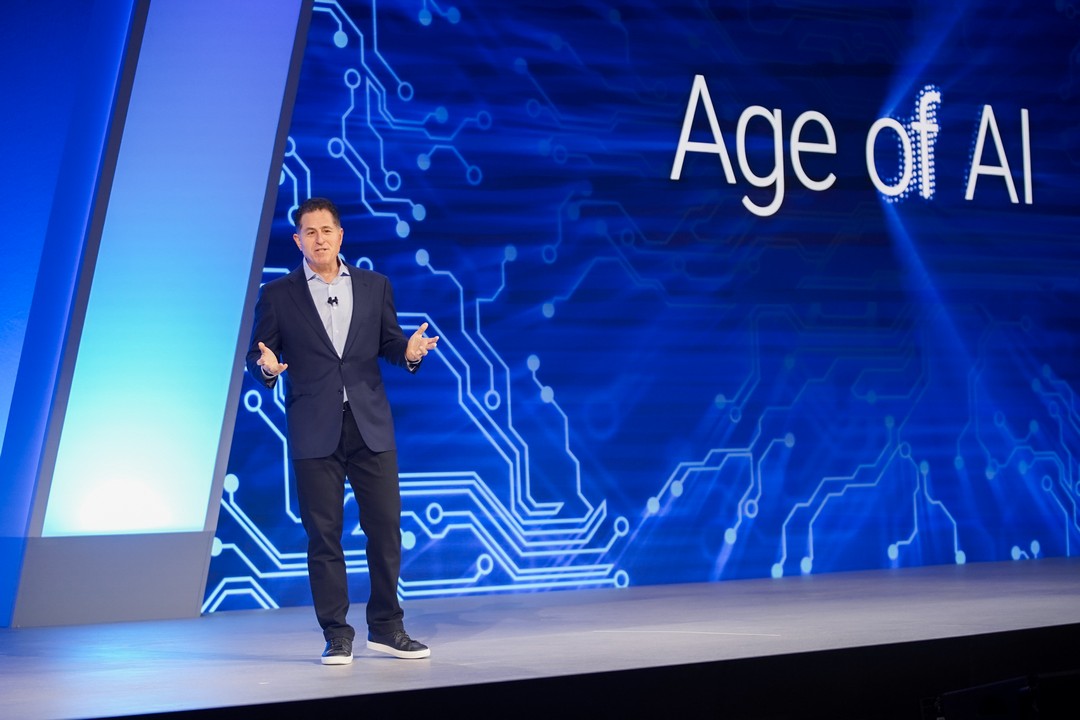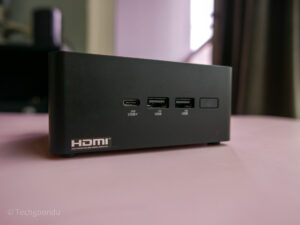
Forty years ago in 1984, Michael Dell built PCs in his hostel room at the University of Texas. Then 19 years old, he pioneered a new way of doing business – building PCs to order and selling them directly to consumers, cutting out the middleman.
Now the 59-year-old tech billionaire has set his sights on a new revolution powered by AI. Dell Technologies, the company he built, is undergoing its most dramatic transformation yet.
From the time he founded his company, Dell has led the charge in making PCs accessible and affordable. But the PC business experienced ups and downs. Dell expertly pivoted into servers and cloud computing in the mid-90s, diversifying the company into the enterprise IT market.
This effort, together with the acquisition of enterprise software company EMC in 2016, laid the foundation for the company’s current bold move to become an enterprise IT AI giant.
At Dell Technologies World 2024 in Las Vegas, Dell unveiled the AI Factory, a comprehensive suite of technologies designed to drive AI deployment for businesses of all sizes, further entrenching the company firmly in the enterprise GenAI market.
This is not just about throwing some hardware together – it is an intelligent bundle comprising high-performance servers pre-configured for AI workloads, cutting-edge networking and storage solutions, and powerful new laptops boasting Qualcomm’s latest AI chips.
At his keynote speech at the opening of Dell’s three-day annual technology and customer event on May 20, Michael Dell said the AI Factory’s aim is to help companies accelerate AI deployment by hastening application development and boosting efficiencies and innovation.
The world is moving from computation towards cognition, the Dell CEO pointed out, adding that companies would have to re-imagine and re-invent as GenAI is a generational opportunity for productivity, innovation and growth.
Central to the AI Factory is the high-performance server Dell PowerEdge XE9680L, which offers direct liquid cooling and the latest Nvidia GPUs called Blackwell and the Dell PowerScale F910 all-flash file storage.
Included in the offerings are Dell’s professional services which promise to work with organisations to plan, prepare and deploy GenAI projects, and Dell’s latest laptops sporting Qualcomm’s chips.
The new server features eight Blackwell Tensor Core graphics processing units (GPUs) for fast processing. This enables organisations to build and run real-time generative AI on trillion-parameter large language models at up to 25 times less cost and energy consumption than its predecessor. Blackwell is the latest Nvidia GPUs announced earlier this year.
Notably, Dell’s latest laptops unveiled here in Las Vegas don’t feature an Intel chip inside. Five new models unveiled on May 20 are powered by Qualcomm’s Snapdragon X Elite, raising the bar on laptop performance while offering long-lasting battery life.
They are also the first to feature Microsoft’s latest AI feature Copilot+ which can manage intensive AI workloads for corporate end users.
The switch to Qualcomm chips, better known for powering mobile phones, is significant as Dell aims to offer enterprise users longer battery life as they work on AI workloads. This is central to its belief that GenAI inferencing will be conducted on PCs and other edge devices.
“We are following where the data is leading us,” said Michael Dell, explaining that more inferencing will be done on laptops as enterprises move this task to on-premise clouds which is more affordable than the public clouds.
In his hour-long keynote address, Dell was joined on stage by business partners Bill McDermott, CEO of ServiceNow and Jensen Huang, CEO of Nvidia.
All industries will be re-invented with AI, declared McDermott. “Every company will become an intelligence company, where data is harnessed for insights and new information.”
Transforming the knowledge to business outcomes is key to remaining competitive, he stressed, noting that “as what you know and what you do with what you know is what generates revenue”.
Meanwhile, Nvidia CEO Huang stressed that for the first time in history, businesses now have the ability to manufacture intelligence.
This has opened up business opportunities, for example, to modernise the data centre to be able to take on heavy AI workloads, he added.
As for Dell, the 40-year-old tech company is selling its new AI Factory as a complete end-to-end solution. Sensing an opening, it is positioning itself as a one-stop shop for businesses venturing into the world of GenAI, a market expected to reach a staggering US$1.3 trillion by 2032.
Just like electricity fuelled the Industrial Revolution, AI now promises to usher in a new era – the Age of Cognition. By automating tasks and generating valuable insights from data, AI will free human minds for the truly creative and strategic work, said Michael Dell.






